Are you or a loved one navigating the challenges of diabetes management? Understanding the importance of effective communication in your healthcare journey can make a significant difference. In this article, we'll outline a comprehensive letter template designed specifically for diabetes management programs, ensuring that you can convey your concerns, preferences, and goals clearly. Join us as we delve deeper into this essential resource and empower your diabetes management strategy!
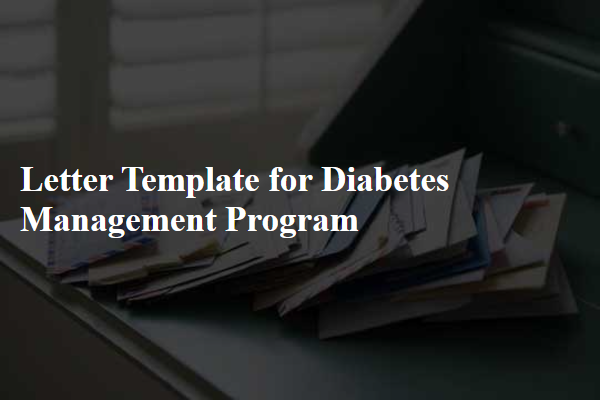
Personalized patient information
Diabetes management programs focus on individualized patient care, where personalized patient information plays a crucial role in effective treatment. Blood glucose levels, measured through daily monitoring, should ideally range between 70 to 130 mg/dL before meals. Patient history, including body mass index (BMI) calculations, assists in tailoring dietary recommendations, aiming for a balanced intake of carbohydrates, proteins, and healthy fats per meal. Key medications such as Metformin, often prescribed for type 2 diabetes, require dosage adjustments based on renal function tests (creatinine levels) to avoid complications. Regular appointments for A1C tests, ideally every three months, help assess long-term blood sugar control, with a target level below 7% for most adults. Lifestyle interventions, including 150 minutes of moderate exercise per week, are vital in managing insulin sensitivity and overall health. Education on recognizing hypoglycemia, defined as blood sugar below 70 mg/dL, is essential for prompt treatment with fast-acting carbohydrates, ensuring patient safety and well-being.
Comprehensive program overview
The diabetes management program offers a structured approach to controlling blood sugar levels for individuals diagnosed with type 1 or type 2 diabetes. This program includes educational workshops focused on nutrition, which emphasize the importance of a balanced diet rich in complex carbohydrates, lean proteins, and essential fats. Regular exercise is encouraged, with tailored fitness plans designed to boost insulin sensitivity and maintain cardiovascular health. Continuous glucose monitoring systems, like the Dexcom G6, provide real-time insights into blood sugar fluctuations, allowing participants to make informed decisions. Monthly group support sessions foster community engagement, where participants can share strategies and challenges. Access to healthcare professionals, including certified diabetes educators and registered dietitians, ensures personalized guidance. The overarching goal of this program is to empower individuals to manage their diabetes effectively, improving quality of life while reducing the risk of complications, such as neuropathy and cardiovascular diseases.
Key benefits and outcomes
The diabetes management program offers significant benefits aimed at improving the overall health and well-being of participants, specifically targeting Type 2 diabetes, which affects over 34 million adults in the United States. Personalized care plans, developed based on individual health assessments, are tailored to include dietary recommendations guided by registered dietitians, which can lead to improved glycemic control and weight management. Regular monitoring of blood glucose levels, measured in milligrams per deciliter (mg/dL), enables timely adjustments to treatment protocols, enhancing medication adherence and reducing the risk of complications such as neuropathy or cardiovascular issues. Educational workshops conducted in facilities like community health centers promote knowledge about lifestyle modifications, including exercise regimens, potentially leading to a 7% reduction in blood sugar levels. Participants report heightened awareness of their condition, often leading to a more proactive approach to health management, positively impacting long-term outcomes and overall quality of life.
Schedule and appointment details
The Diabetes Management Program offers comprehensive support for individuals diagnosed with diabetes, providing essential resources and personalized care plans. Scheduled appointments typically occur biweekly at the Community Health Center, located on Maple Street, facilitating easy access for participants. Each session lasts approximately one hour, focusing on nutrition education, glucose monitoring techniques, and lifestyle modifications. The program aims to empower individuals with the knowledge needed to effectively manage their condition. Participants will receive reminders via email and text, ensuring they stay informed about appointment times and any upcoming workshops. Engaging with healthcare professionals such as registered dietitians and certified diabetes educators is crucial for successful diabetes management and overall health optimization.
Contact and support information
Diabetes management programs provide essential support for individuals managing Type 1 and Type 2 diabetes. These programs often include a team of healthcare professionals such as certified diabetes educators, dietitians, and endocrinologists available for consultations. Educational resources include workshops and seminars focused on blood sugar monitoring, nutritional guidance, and exercise regimens tailored to individual needs. Support networks may also involve peer groups for emotional encouragement and motivation. Many programs feature 24-hour helplines and online platforms for easy access to assistance and information. Local community centers frequently host events that offer screenings and resources, promoting awareness and proactive management of diabetes. Regular follow-up appointments help adjust treatment plans to enhance overall health outcomes.
Letter Template For Diabetes Management Program Samples
Letter template of diabetes management program for newly diagnosed patients.
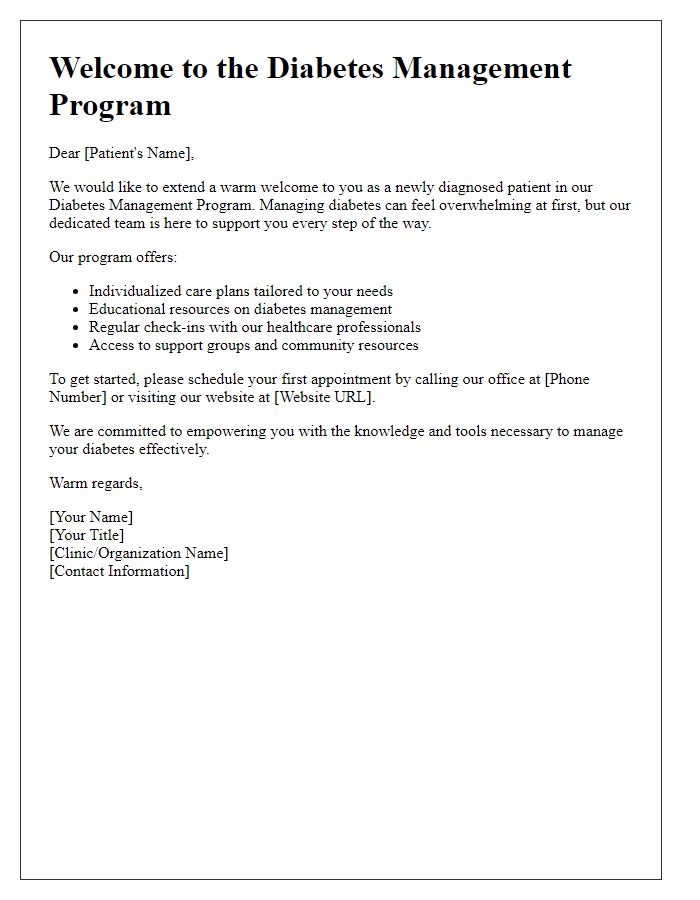
Letter template of diabetes management program for ongoing patient follow-up.
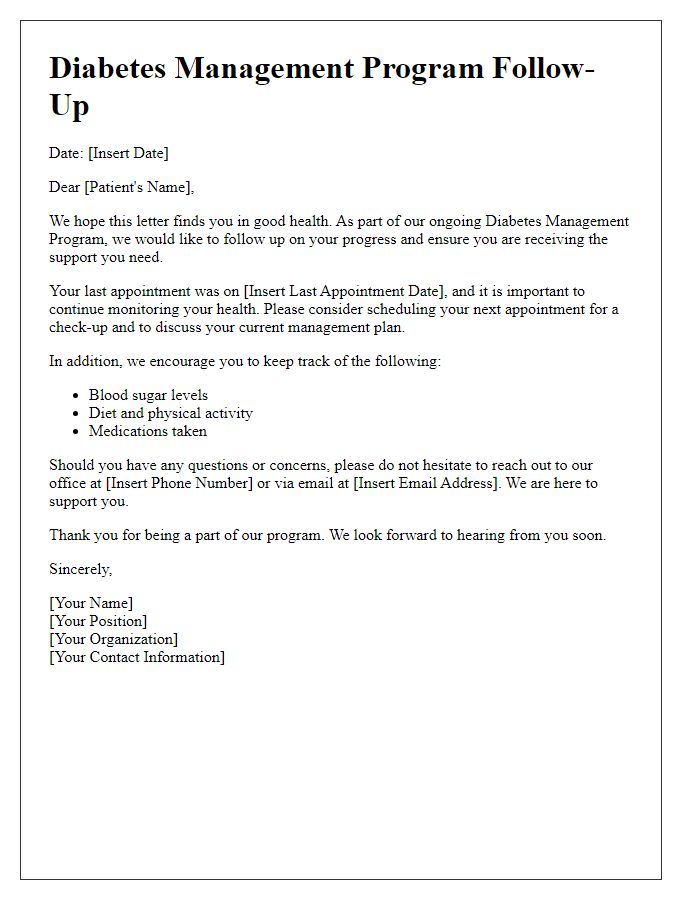
Letter template of diabetes management program for personalized meal planning.
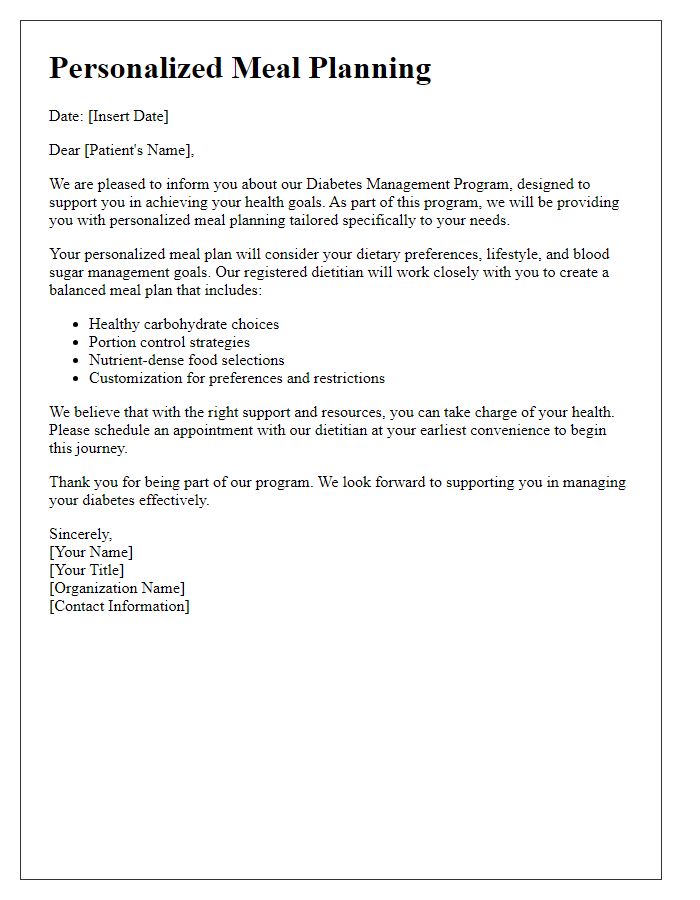
Letter template of diabetes management program for weight management support.
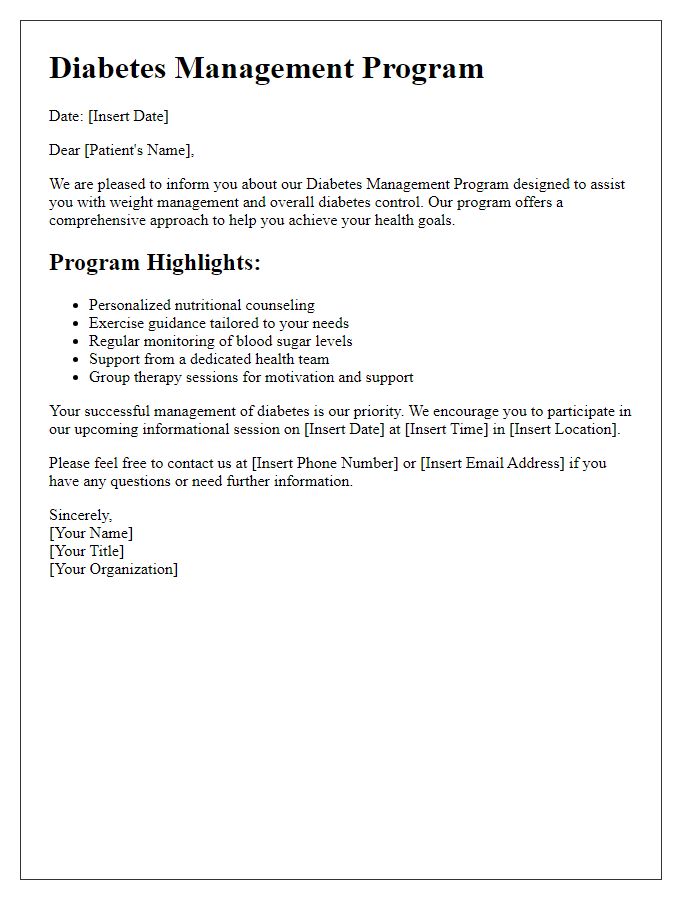
Letter template of diabetes management program for exercise and fitness guidance.
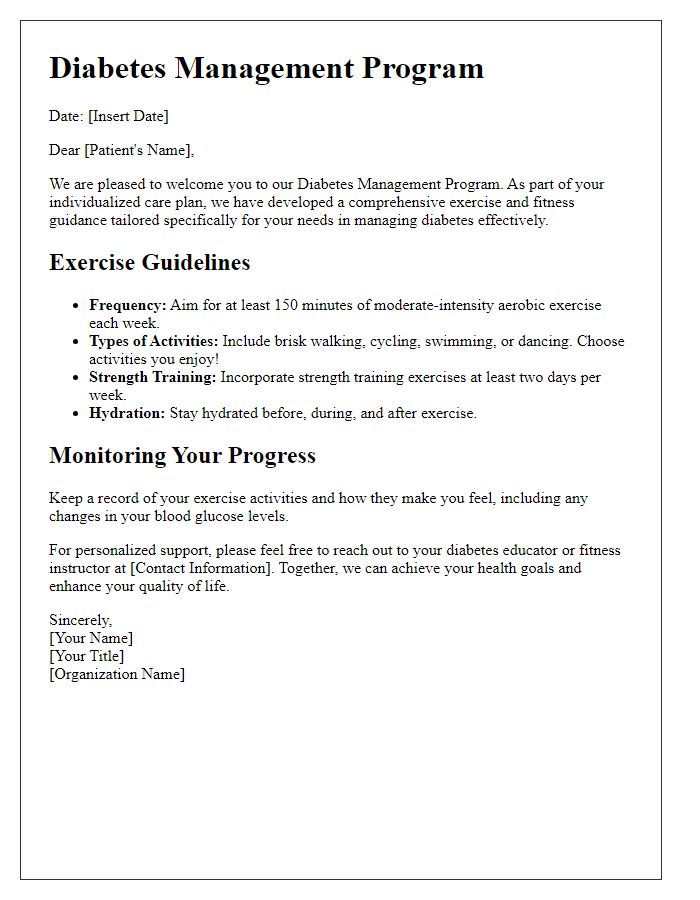

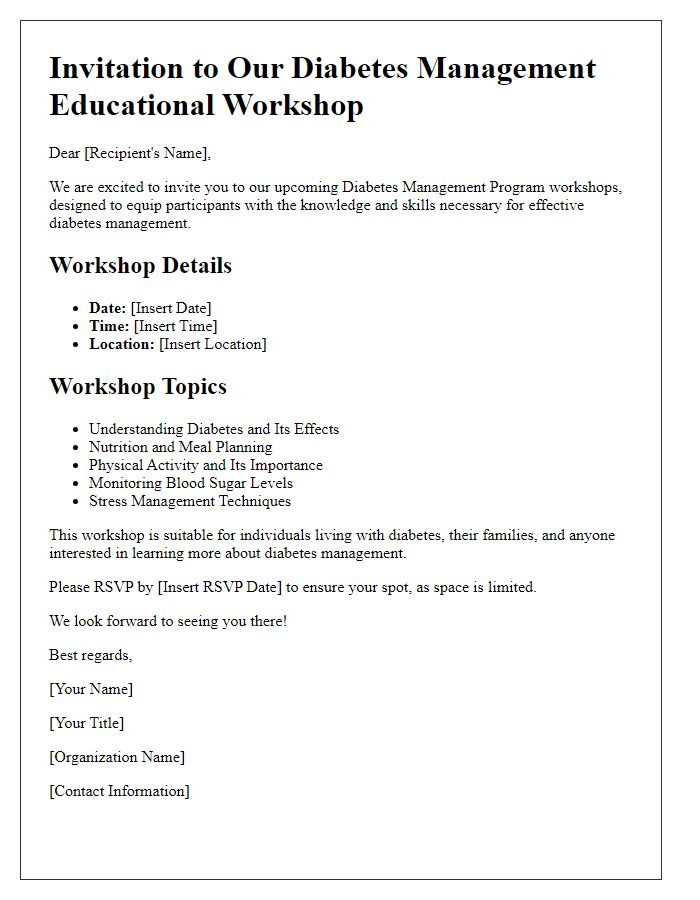
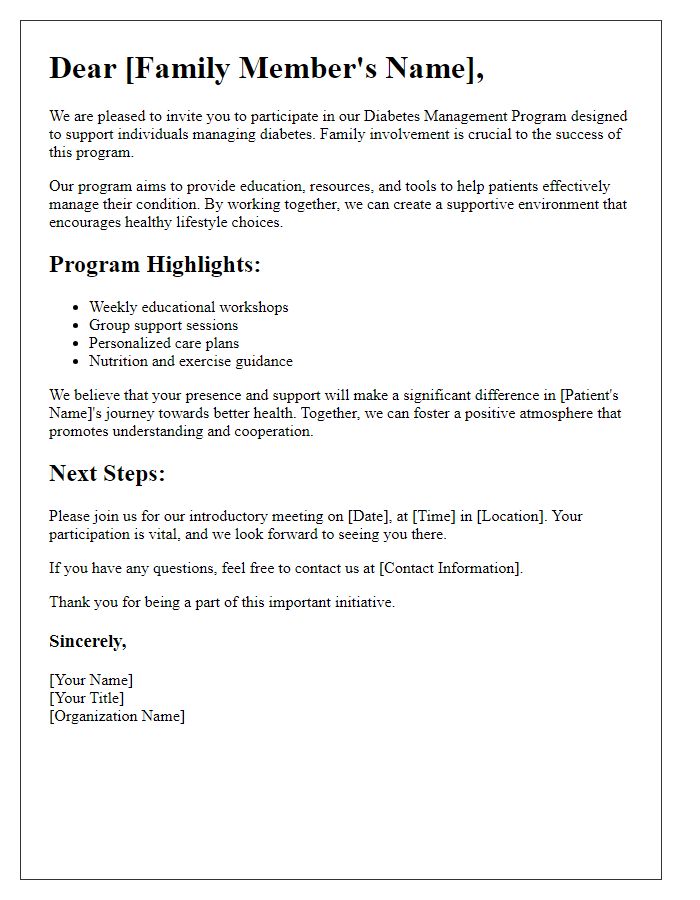
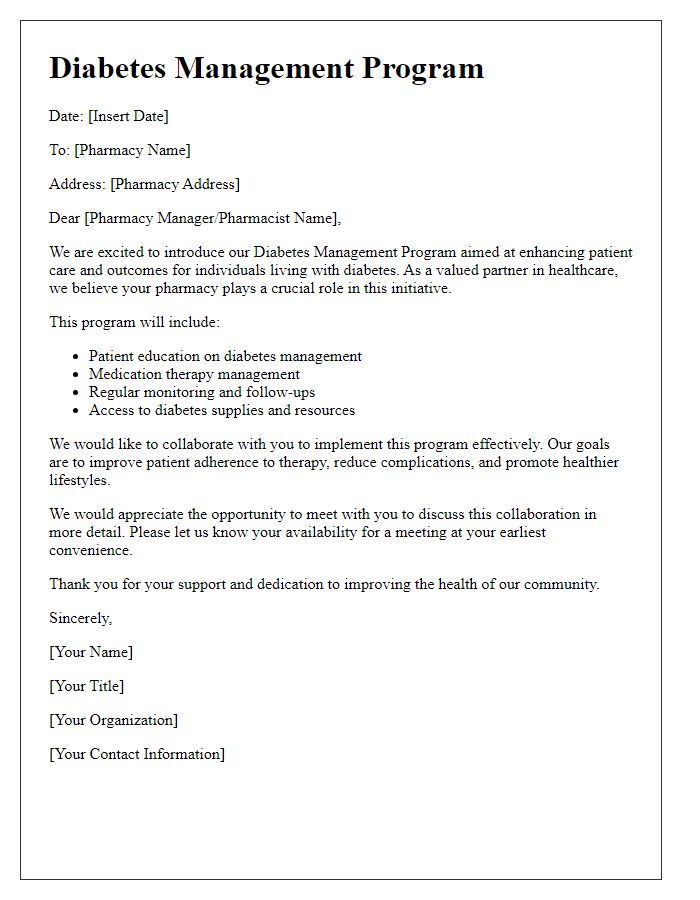
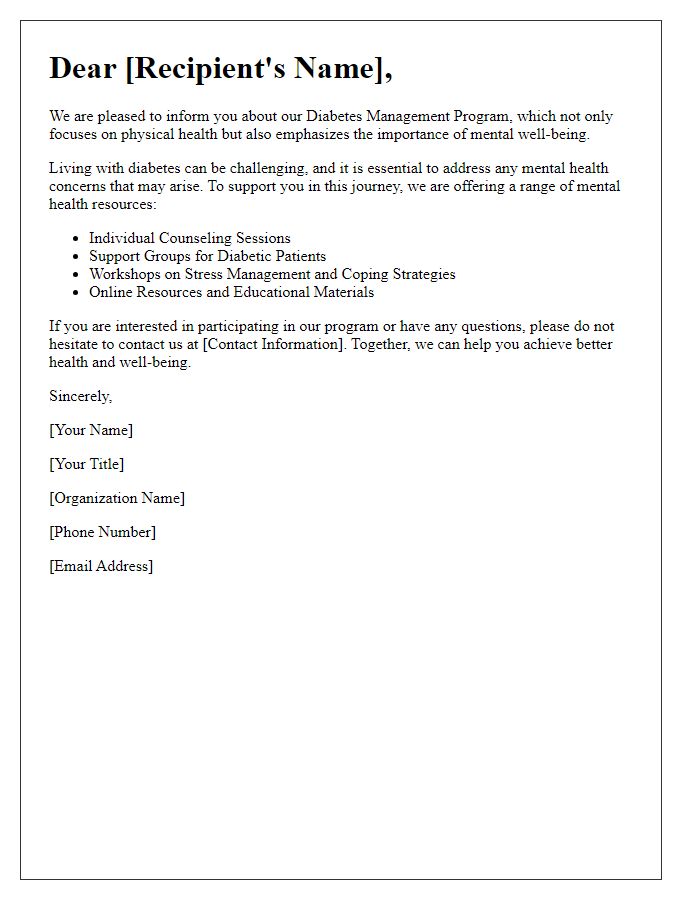
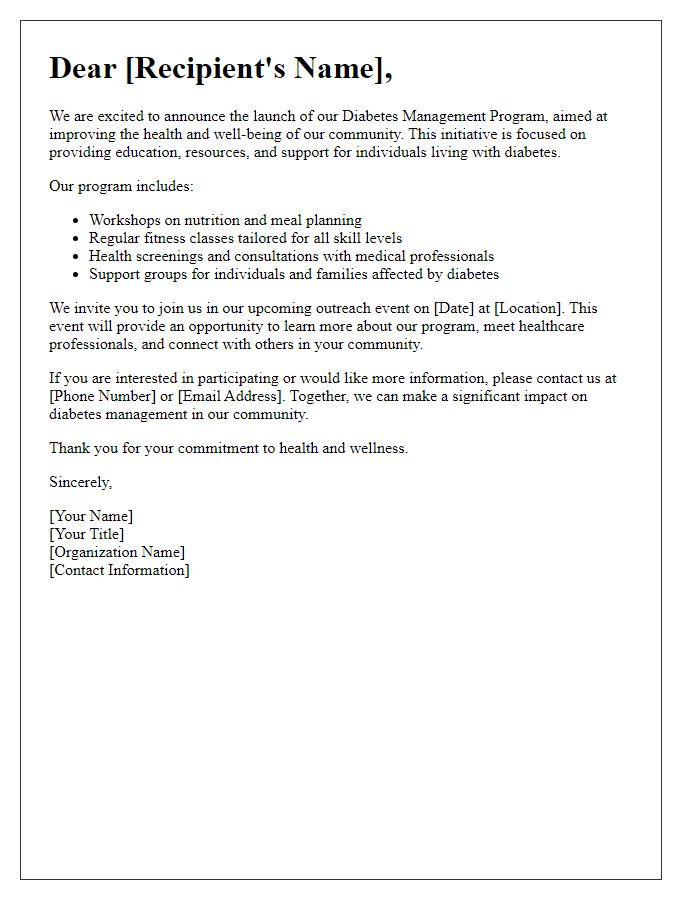

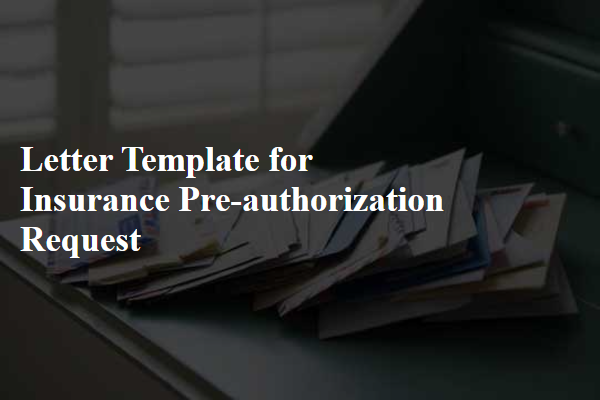



Comments